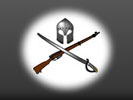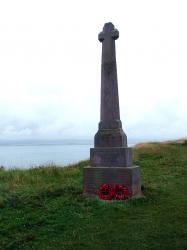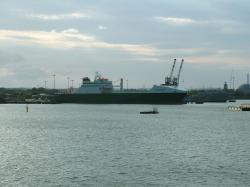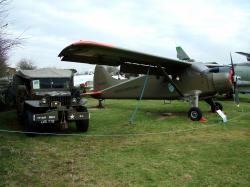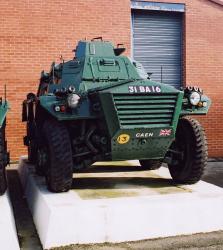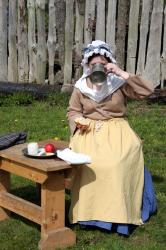Translate this Page
The 1st Boer War, or Transvaal War of Independence
War Name : The 1st Boer War, or Transvaal War of Independence
Date(s) : 16 December 1880 - 21 March 1881
Part of : British Victorian Colonial 'Small Wars' ,
Summary
In 1877 the independent Boer Republic of the Transvaal in south Africa was suffering serious economic problems. In an attempt to preserve the stability of the area, and to further the British Colonial Secretary's plan of confederation in South Africa, between the Cape Colony, Natal and the other colonies, under British rule, the Transvaal was annexed by Britain.
Although there was much resentment to this from the Boers, little action was taken as it was thought that Gladstone would soon become Prime Minister in Britain, and was sympathetic to Boer independence. When he was elected, but did nothing, indeed seemed to back further confederation, resentment built.
Things came to a head in November 1880 when a farmer named Bezuidenhout refused to pay his taxes to the British. The Sheriff of Potchefstroom and his men seized Bezuidenhout's wagons and property but a party of 300 armed Boers under Piet Cronje assembled, and took back all that was seized.
The die was cast, and a council was called at Paardekraal on 8th Dec 1880 attended by 5,000 armed men and their families. At this meeting, which lasted several days, Paul Kruger, Marthinus Pretoria (son of the state founder) and Commandant-General Piet Joubert were nominated a triumvirate and restoration of the Republic was agreed upon.
The Vierkleur, the national flag, was raised at Heidelberg on 16th Dec 1880, Dingane's day, the anniversary of the battle of Blood river in 1838 when Andries Pretorius' Boers had destroyed Dingane's Zulu Impis.
The war itself was a humiliating disaster for the British who hopelessly underestimated their enemy. After a couple of engagements at Laing's Nek and Ingogo Kruger offered to negotiate for peace with the British Government who, following such defeats was happy to talk. General Colley, however, wanted to rescue the reputation of the British soldier so on 27th Feb 1881 attacked the Boers under Joubert at Majuba anyway. The result was an utter rout of the British and the death of Colley himself.
Peace and internal independence under the 'suzerainty' of Britain (Britain retained the right to speak for the Transvaal in Foreign affairs) was quicky agreed, and Kruger was named President.
